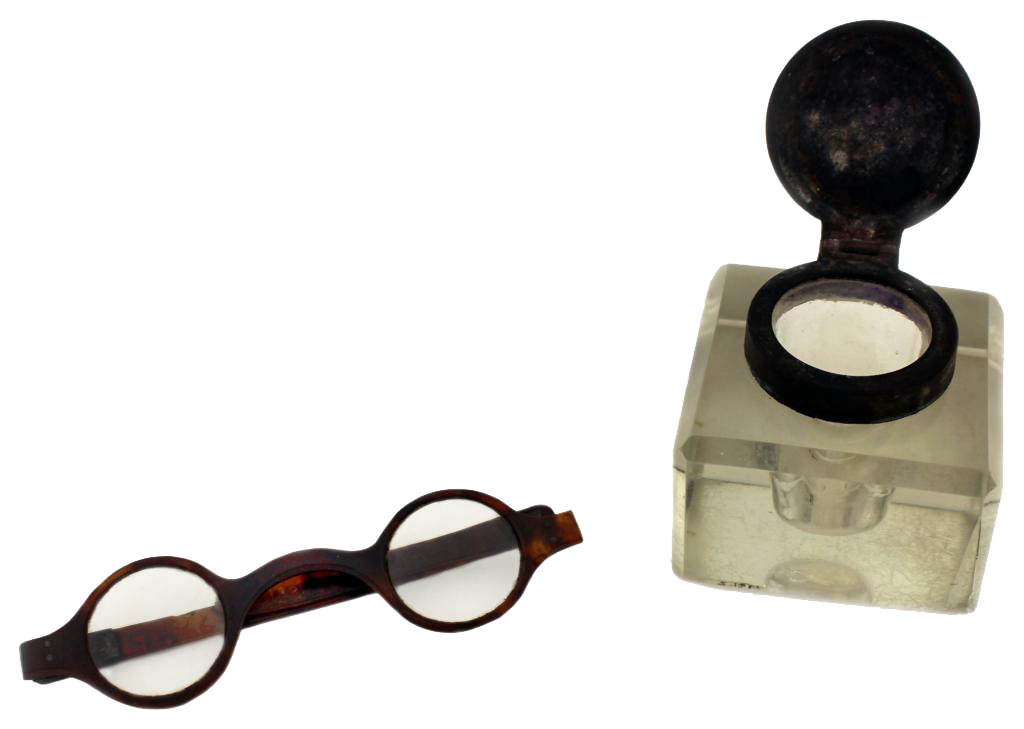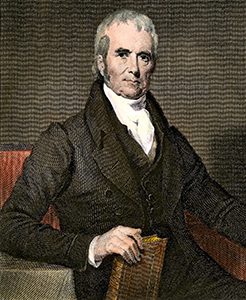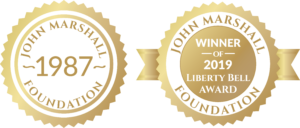
These spectacles and inkwell were among the items Marshall would have used within his Richmond, VA, home. Spectacles & Inkwell (courtesy Preservation Virginia/John Marshall House)
Chief Justice
The framers of the U.S. Constitution spent little time defining the judicial branch. Unlike articles outlining the legislative and executive branches, Article III of the Constitution is short and lacks specificity about how a judicial branch should function. John Marshall would deduce and unveil the powers of the Court that the framers envisioned.
Marshall’s formal legal education began in 1780, when he began study at William & Mary. He earned his law license in only three months while on military leave. Although he spent several years in the Virginia legislature, he was frustrated to find “no … permanent remedy” for important issues and returned to his law practice.
Prior to leaving office in 1801, President Adams nominated Marshall, a supporter and fellow Federalist, as Chief Justice of the United States. Marshall was seated one month before the inauguration of Thomas Jefferson, an opponent of the Federalists with a competing vision. Despite Jefferson’s opposition, Marshall elevated the authority of the Supreme Court transforming the ill-defined federal judiciary, into a powerful arm of the government that could match and control the executive and legislative branches.
In his thirty-four years as Chief Justice, John Marshall guided the Supreme Court while it continued to grow as an institution. Landmark decisions including Marbury v. Madison (1803), McCulloch v. Maryland (1819), Cohens v. Virginia (1821), and Gibbons v. Ogden (1824) established precedents that remain today. These decisions plus Osborn v. Bank of the United States represent five of the top ten most often cited Supreme Court decisions.
John Marshall Center for Constitutional History & Civics
Mailing Address
PO Box 7090
Richmond, VA 23221
Physical Address
Virginia Museum of History & Culture
428 N. Arthur Ashe Blvd.
Richmond, VA 23220
Phone: 804.775.0861
John Marshall Center for Constitutional History & Civics is a non-partisan, non-profit 501(c)(3) tax-exempt organization.
All donations are tax-deductible to the extent allowed by law.


